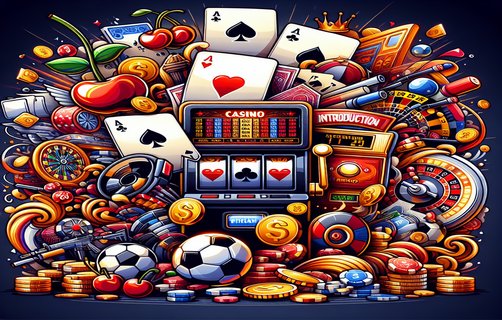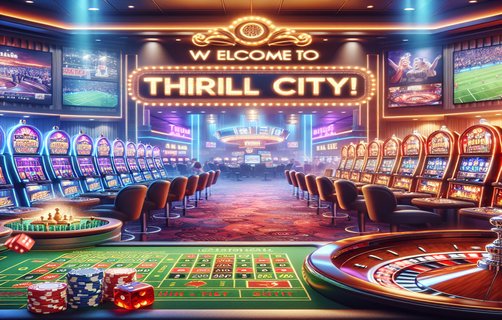Mastering Poker: A Deep Dive into Betting Strategies and Mental Fortitude
पोकर मास्टरing: दांव रणनीतियों और मानसिक दृढ़ता में गहरा गोता

In the world of poker, hand rankings are pivotal, but the mental aspect of the game can often outweigh mere numerical values. Flexibility in your mental control and fortitude is crucial; winning requires not only skill but also a robust psychological approach. This involves maintaining composure in high-stake situations, recognizing the nuances of your emotions, and exerting self-discipline.
Understanding dealer moves and their implications can influence betting behavior notably. Observing a dealer’s slight variations when dealing cards, or the rhythm of play, provides insights into how to time your bets. A strategic selection of when to check, call, or raise can hinge on interpretation of these dealer moves.
Calm focus is indispensable. The ability to concentrate amidst the chaos of a poker game prevents rash decisions. Fostering this mental state involves familiarizing yourself with techniques such as mindfulness or meditation, which enhance your cognitive control. A calm mindset allows for clearer assessment of patterns, enabling a more nuanced game.
Recognizing card reaction patterns is a lesser-discussed yet essential aspect of poker psychology. Players often react predictably to certain hands; identifying these trends not only allows for better reading of opponents but helps in calibrating your responses. For instance, an opponent who bluffs frequently may lead you to a different betting path than one who plays conservatively.
Regularly evaluating your mistakes is vital for growth in this game. Post-session analysis can illuminate flawed strategies or lapses in judgment, fostering continuous improvement. It is important to differentiate between decisions that were mathematically incorrect and those that were viable but poorly executed.
Planning strategies regarding the amount to bet adds another layer to this complex game. Deciding your bet size should take into account the pot odds and opponent tendencies. Effective bankroll management also means knowing when to sit out or adjust your stakes to safeguard your investment.
Lastly, oversight in stakes management is critical. Setting personal limits and adhering to them can protect you from significant losses, enhancing longevity in the game. It’s not just about winning hands but also about ensuring that you can keep playing the game for years to come, learning and evolving with each hand dealt.
In conclusion, poker is not just a game of cards; it's a multifaceted test of mental agility and strategy. By mastering mental fortitude, understanding dealer behaviors, cultivating a calm focus, and recognizing reaction patterns, you empower yourself not only to play but to thrive in the world of poker.

पोकर की दुनिया में, हाथों की रैंकिंग महत्वपूर्ण होती है, लेकिन खेल के मानसिक पहलू के रूप में केवल संख्यात्मक मूल्यों की तुलना में अधिक महत्वपूर्ण हो सकता है। आपके मानसिक नियंत्रण और दृढ़ता में लचीलापन होना आवश्यक है; जीतने के लिए केवल कौशल की आवश्यकता नहीं होती, बल्कि एक मजबूत मानसिक दृष्टिकोण की भी। इसमें उच्च दांव की परिस्थितियों में ठंडा बने रहना, अपनी भावनाओं के बारीकियों को पहचानना, और आत्म-नियंत्रण लागू करना शामिल है।
डीलर की चालें और उनके निहितार्थों को समझना दांव लगाने के व्यवहार पर उल्लेखनीय रूप से प्रभाव डाल सकता है। कार्ड डील करते समय एक डीलर की मामूली भिन्नताओं पर ध्यान देना या खेल की लय आपको बताएंगे कि आपके दांव का समय कैसे सेट किया जाए। चेक, कॉल या रेज़ करने का एक रणनीतिक चयन इन डीलर चालों की व्याख्या पर निर्भर कर सकता है।
शांत ध्यान अनिवार्य है। एक पोकर खेल के अराजकता के बीच ध्यान केंद्रित रखने की क्षमता आपको जल्दी निर्णय लेने से बचाती है। इस मानसिक स्थिति का पोषण करने में ध्यान या ध्यान, जो आपकी संज्ञानात्मक नियंत्रण को बढ़ाता है, का उपयोग करना शामिल है। एक शांत मानसिकता पैटर्न के बेहतर मूल्यांकन की अनुमति देती है, जिससे एक अधिक बारीक खेल खेलना संभव हो जाता है।
कार्ड प्रतिक्रिया पैटर्न को पहचानना पोकर मनोविज्ञान का एक कम चर्चित लेकिन आवश्यक पहलू है। खिलाड़ी अक्सर कुछ हाथों पर भविष्यवाणी करने योग्य प्रतिक्रिया करते हैं; इन प्रवृत्तियों को पहचानकर न केवल प्रतिकूल के पढ़ने में वृद्धि होती है बल्कि आपके उत्तरों को कैलिब्रेट करने में मदद मिलती है। उदाहरण के लिए, एक प्रतिकूल जो अक्सर ब्लफ करता है, आपको एक अलग दांव के पथ में ले जा सकता है जितना कोई जो संवेदनशील खेलता है।
अपनी गलतियों का नियमित मूल्यांकन इस खेल में विकास के लिए महत्वपूर्ण है। पोस्ट-सेशन विश्लेषण के द्वारा आप पराजित रणनीतियों या निर्णय में चूक को उजागर कर सकते हैं, जिससे निरंतर सुधार को बढ़ावा मिलता है। यह महत्वपूर्ण है कि आप उन निर्णयों में भेद करें जो गणितीय रूप से गलत थे और इन जो किसी भी अन्य बाधा से निपटने के लिए है।
दांव की मात्रा को निर्धारित करने से आकृति को जोड़ता है। आपके दांव का आकार तय करते समय पॉट ऑड्स और प्रतिकूल प्रवृत्तियों को ध्यान में रखना चाहिए। प्रभावी बैंक्रॉल प्रबंधन का अर्थ यह भी है कि जब भी आवश्यक हो, आपको बैठने या अपने दांव को समायोजित करना चाहिए।
आखिरकार, दांव प्रबंधन में देखरेख महत्वपूर्ण है। व्यक्तिगत सीमाएं तय करना और उन्हें बनाए रखना आपको बड़े नुकसान से बचा सकती हैं, खेल में दीर्घकालिकता को बढ़ा सकती हैं। यह केवल हाथ जीतने के बारे में नहीं है बल्कि यह भी सुनिश्चित करना है कि आप वर्षों तक खेल सकते हैं, जो हर हाथ के साथ सीखते और विकसित होते हैं।
निष्कर्ष में, पोकर केवल एक कार्ड का खेल नहीं है; यह मानसिक चपलता और रणनीति का एक बहुद्देशीय परीक्षण है। मानसिक दृढ़ता में महारत, डीलर के व्यवहार को समझने, शांत ध्यान विकसित करने और प्रतिक्रिया पैटर्न को पहचानने से आप खुद को न केवल खेलने के लिए वैभव प्रदान करते हैं बल्कि पोकर की दुनिया में फलने-फूलने के लिए भी सशक्त करते हैं।

comments
PokerPro88
This analysis truly highlights the importance of mental fortitude in poker.
CardShark54
I appreciate the insights on dealer behavior; it'll definitely improve my game.
BluffMaster
Mistake analysis seems crucial. Gonna take notes after my next session.
ChipsAndBluffs
The strategies on bet sizing are very helpful! Can’t wait to apply them.
FocusedPlayer
Calm focus is key! Going to try mindfulness before my next game.
WinnersMindset
Great read! Need to work on my card reaction patterns.